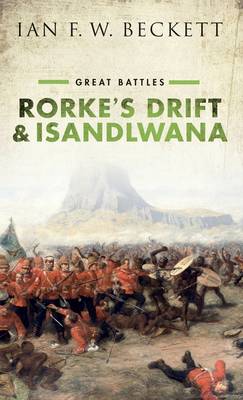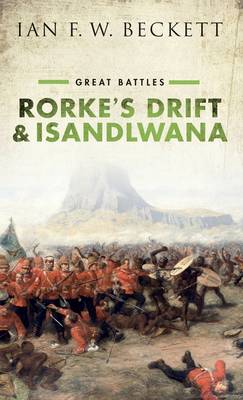
- Afhalen na 1 uur in een winkel met voorraad
- Gratis thuislevering in België vanaf € 30
- Ruim aanbod met 7 miljoen producten
- Afhalen na 1 uur in een winkel met voorraad
- Gratis thuislevering in België vanaf € 30
- Ruim aanbod met 7 miljoen producten
Zoeken
€ 26,95
+ 53 punten
Uitvoering
Omschrijving
The battle of Isandlwana on 22 January 1879, the first major encounter in the Anglo-Zulu War, witnessed the worst single day's loss of British troops between the battle of Waterloo in 1815 and the opening campaigns of the First World War in August 1914. Moreover, decisive defeat at the hands of the Zulu came as an immense shock to a Victorian public that had become used to easy victories over less technologically advanced indigenous foes in an expanding empire. The successful defence of Rorke's Drift, which immediately followed the encounter at Isandlwana (and for which 11 Victoria Crosses were awarded), averted military disaster and went some way to restore wounded British pride, but the sobering memory of defeat at Isandlwana lingered for many years, while the legendary tale of the defence of Rorke's Drift was re-awakened for a new generation in the epic 1964 film Zulu, starring Michael Caine. In this new volume in the Great Battles series, Ian F. W. Beckett tells the story of both battles, investigating not only their immediate military significance but also providing the first overarching account of their continuing cultural impact and legacy in the years since 1879, not just in Britain but also from the once largely inaccessible and overlooked Zulu perspective.
Specificaties
Betrokkenen
- Auteur(s):
- Uitgeverij:
Inhoud
- Aantal bladzijden:
- 256
- Taal:
- Engels
- Reeks:
Eigenschappen
- Productcode (EAN):
- 9780198794127
- Verschijningsdatum:
- 10/03/2019
- Uitvoering:
- Hardcover
- Formaat:
- Genaaid
- Afmetingen:
- 142 mm x 218 mm
- Gewicht:
- 385 g

Alleen bij Standaard Boekhandel
+ 53 punten op je klantenkaart van Standaard Boekhandel
Beoordelingen
We publiceren alleen reviews die voldoen aan de voorwaarden voor reviews. Bekijk onze voorwaarden voor reviews.











